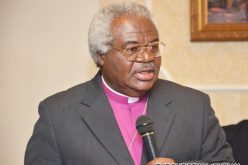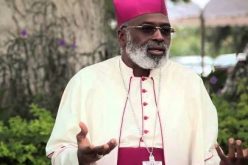 By Deodatus Balile, Dar es Salaam — Tanzania has banned religious hate speech in all its manifestations as the result of a two-day interfaith meeting held in Dar es Salaam that concluded Thursday (May 9th).
By Deodatus Balile, Dar es Salaam — Tanzania has banned religious hate speech in all its manifestations as the result of a two-day interfaith meeting held in Dar es Salaam that concluded Thursday (May 9th).
Dar es Salaam Regional Commissioner Saidi Meck Sadiki told Sabahi that the decision was reached by religious leaders as a way to restore peace.
“The prohibition extends to mosques and churches that are using loud speakers to spread hate speech,” Sadiki said. “From now on, we will arrest whoever engages in hate speech. Whether you are in the church or mosque, if you utter hate speech we will arrest you.”
The directive also extends to people who sell cassettes or other recordings that contain hate speech, he said. “Selling instigating cassettes is as good as selling drugs. We will arrest anyone [disseminating hate speech] unselectively,” he said.
He said loud speakers in churches and mosques are limited to inviting people to worship, and if they are used to insult other religions, police will not hesitate to arrest the instigators.
In response to a question about teachers in schools instigating religious tension or using hate speech, Sadiki said briefly: “If proved, we will de-register such a school.”
Dar es Salaam Special Zone Police Commander Suleiman Kova said religious leaders have asked police to maintain law and order, and therefore officers are going to dedicate themselves to finding those who want to cause unrest in the country.
“From today, the Tanzania Police Force has formed a special unit that will use ICT (information and communications technology) to monitor online communication,” he told Sabahi on Thursday.
“We will monitor Twitter, Facebook, YouTube, Jamii Forums and even SMS [text messaging] from your mobile phones that are propagating hate speech and bring those responsible to justice,” he said.
“This should be taken as a warning to a good number of youth, and a few elders, who are misusing ICT to spread hate speech,” Kova said. “We will follow them there and bring them to justice.”
Joint statement on slaughtering rights, tolerance:
Muslim and Christian leaders in Tanzania urged the government to use law enforcement as a quick solution to ease religious tension in the country, according to a joint statement issued Thursday after the interfaith meetings in Dar es Salaam.
Among the statement’s 16 recommendations is the contentious issue of slaughtering rights that has sparked violence in Tanzania over the past year.
“We will make special arrangements for religious leaders to go to the press and explain the right procedures for slaughtering,” Sadiki told Sabahi. “It was discussed in the meeting and I am sure the true definition serves the interests of all parties in the country and is likely to leave our nation more united.”
He said the rules for slaughtering have been determined and do not infringe any faith, and will soon be made public by religious leaders.
As a part of the solution, religious leaders said the rules for slaughtering animals and birds should be discussed by religious leaders using the Bible and Qur’an as guidance. It also urges religious leaders to refrain from uttering divisive statements before the public.
“As religious leaders, we are bestowed with the capacity to maintain peace and security,” the statement said. “Religious violence can easily destroy our peace and security. We should not allow our peace to be played around with.”
The statement urges religious leaders to engage in religious debates with respect for other faiths, to introduce religious teachings at the primary school level, maintain interfaith relationships, and encourages parents and religious leaders to educate youth on the importance of maintaining peace.
It also recommended job creation as a way of reducing idle time for youth, and said that government and religious leaders should meet together twice a year, religious complaints should be resolved quickly whenever they arise, and religious leaders should meet with the press regularly to talk about maintaining peace in the country.
Religious leaders support recommendations:
Bishop Charles Salala of Africa Inland Church attended the two-day meeting and said he supports the recommendations, especially the role of parenting.
“Child rearing is not a joke. Parents should be committed and raise their children [to have] ethical lives,” he told Sabahi. “Let them from the early days preach [to their children] peace, harmony, tolerance and love to everyone.”
Dar es Salaam Muslim leader Sheikh Alhad Mussa Salum said such meetings should be held regularly and leaders should implement the agreements in their congregations immediately.
“We should never cheat ourselves by thinking peace has an alternative under the sun,” he told Sabahi after the meeting. “Let us put aside jokes when it comes to peace. Once peace is lost, automatically we will lose our freedom.”










